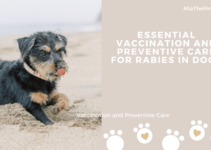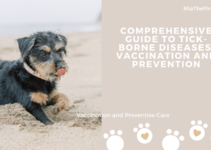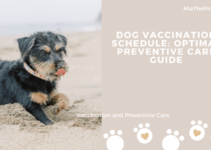The Importance of Deworming for Dogs
Deworming plays a crucial role in maintaining the health and well-being of our beloved canine companions. Dogs are prone to various types of intestinal parasites, commonly known as worms, which can cause severe health issues if left untreated. Therefore, regular deworming is essential to ensure the overall health and happiness of our furry friends.
Common Types of Intestinal Parasites in Dogs
There are several types of worms that can infest dogs, including roundworms, hookworms, whipworms, and tapeworms. Each of these parasites poses a unique threat to the health of our dogs and requires specific treatment. Understanding the different types of worms is crucial in identifying and addressing infestations effectively.
Signs and Symptoms of Worm Infestation in Dogs
Identifying the signs and symptoms of worm infestation is vital for early detection and prompt treatment. Some common indicators include diarrhea, vomiting, weight loss, a dull coat, abdominal pain, and visible worms or eggs in the dog’s stool. If you notice any of these signs, it is important to consult a veterinarian for a proper diagnosis and treatment plan.
Recommended Deworming Schedule for Puppies and Adult Dogs
Establishing a regular deworming schedule is crucial to prevent and control worm infestations in dogs. Puppies should be dewormed starting at two weeks of age, with subsequent treatments every two to three weeks until they are three months old. Adult dogs should be dewormed at least once every three months. However, the specific schedule may vary based on the dog’s lifestyle and risk factors, so consulting with a veterinarian is recommended.
Different Deworming Methods and Products Available
When it comes to deworming dogs, there are various methods and products available. These include oral medications, topical treatments, and injectable solutions. The choice of deworming method depends on factors such as the type of worms, the dog’s age, and overall health. Your veterinarian will recommend the most suitable deworming product and administration method for your furry companion.
Tips for Preventing Worm Infestation in Dogs
Preventing worm infestations in dogs is as important as treating them. Here are some tips to keep your canine friend safe and healthy:
- Ensure regular deworming as per the veterinarian’s recommendation.
- Maintain a clean living environment for your dog, regularly removing feces from the yard.
- Practice good hygiene by washing your hands after handling your dog or cleaning up after them.
- Avoid contact with other animals’ feces, especially in public places.
- Prevent your dog from hunting and consuming rodents or other wildlife.
- Keep your dog away from areas known to be infested with worms, such as dog parks with poor sanitation.
By following these preventive measures and staying vigilant, you can significantly reduce the risk of worm infestation in your beloved furry companion.
FAQs
1. What are the common types of intestinal parasites in dogs?
The common types of intestinal parasites in dogs include roundworms, hookworms, whipworms, and tapeworms.
2. What are the signs and symptoms of worm infestation in dogs?
The signs and symptoms of worm infestation in dogs can include diarrhea, vomiting, weight loss, a dull coat, abdominal pain, and visible worms or eggs in the dog’s stool.
3. What is the recommended deworming schedule for puppies and adult dogs?
Puppies should be dewormed starting at two weeks of age, with subsequent treatments every two to three weeks until they are three months old. Adult dogs should be dewormed at least once every three months, but the specific schedule may vary based on the dog’s lifestyle and risk factors.
4. What are the different deworming methods and products available for dogs?
Different deworming methods and products for dogs include oral medications, topical treatments, and injectable solutions. The choice of deworming method depends on factors such as the type of worms, the dog’s age, and overall health.
5. What are some tips for preventing worm infestation in dogs?
To prevent worm infestations in dogs, it is important to ensure regular deworming, maintain a clean living environment, practice good hygiene, avoid contact with other animals’ feces, prevent your dog from hunting and consuming rodents or wildlife, and keep your dog away from areas known to be infested with worms.



